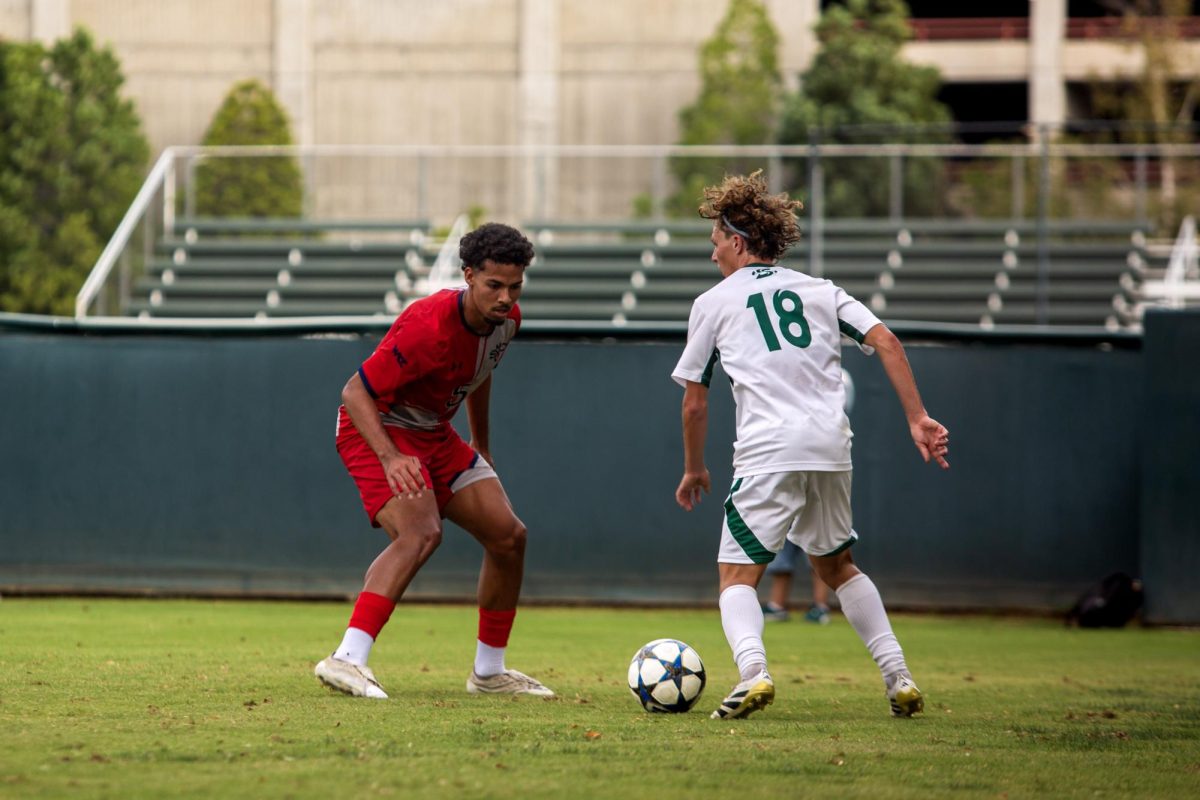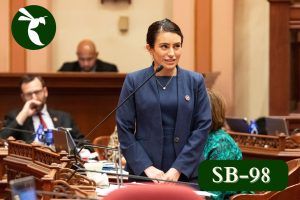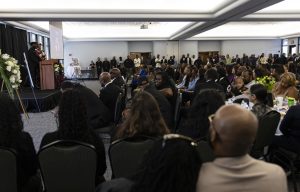President Gonzalez awards professor for HIV research
November 9, 2010
Winning a president’s award for her research may be a big honor, but for chemistry professor Katherine McReynolds, it is secondary to her goal of creating a new drug to treat HIV.
McReynolds is the 22nd recipient of President Alexander Gonzalez’s President’s Award for Research and Creativity, which was awarded on Oct. 27. It is given annually to professors who demonstrate above-and-beyond research and creative activity within their first 10 years at Sacramento State.
McReynolds was recognized for her research, which involves creating a drug with antiviral properties and could have a monumental impact on HIV treatment.
McReynolds said this is especially important because a lot of the drugs on the market now for HIV treatment have bad side effects, work too slowly and have short-lived effectiveness.
“If I could plan my ideal drug, it would be something safe, effective and can be used in a preventative way, and also wouldn’t be toxic,” McReynolds said. “If we do successfully develop a new drug, it could have great implications, but that’s likely many years down the road, it takes a long time to get there.”
McReynolds became interested in HIV treatment research while studying as a graduate student at the University of Arizona.
“I was mostly intrigued with trying to come up with a really good solution to a big problem which is how can you get creative and make a new drug that’s effective and safe and all of those great things that can actually go after the virus,” she said.
But McReynolds said she did not always intend on having a career in chemistry.
She began as a pre-veterinary major at Cal Poly San Luis Obispo.
She said her interest began to shift after her first chemistry class with a professor who was passionate about the subject.
“He really had a love for chemistry that I appreciated and was intrigued by,” McReynolds said.
She began taking more chemistry classes, eventually switching her major to biochemistry. She then went on to the University of Arizona where she received a master’s degree in chemistry, focusing on organic and biochemistry.
Even after all this education, McReynolds’ thirst for knowledge thrived. She went on to UC Davis where she worked as a postdoctoral researcher in the College of Medicine for two years before coming to Sac State.
As a professor, McReynolds focused mostly on her research, but at the end of the day, she said it is all about her students.
“She’s a very dedicated teacher and mentor. She takes the extra time and goes the extra distance to really work with you and help you understand what you’re doing and help you gain not just knowledge but to gain hands on experience,” said graduate student Michelle Watterson, who has been McReynolds’ student for more than five years.
McReynolds said her research would not have been possible without her students.
She has five undergraduate students, five graduate students, and even a high school student working with her in the lab on research.
“They do a lot of work, a lot more work than I could do by myself. It helps on two fronts; they get the training, and I get students to help me with my goal,” she said.
McReynolds is also a member of the California State University Program for Education and Research in Biotechnology, which provides funding for faculty and students allowing them to travel and conduct research.
“She’s very dedicated to her students not only in the classroom but in research. She’s very active and has done very well in research,” said graduate student Janee Hardman, who has worked with McReynolds for about five years.
Even though McReynolds’ research has been recognized and honored by the university, she said that is not what matters most.
“We can make a lot of things; we can write a lot of papers, and hopefully someday make something that has some good antiviral activity, but getting to work closely with students, really get to know them as people and individuals, ultimately as scientists and peers, that’s the best part,” McReynolds said.
Cayla Gales can be reached at [email protected]
























































































































